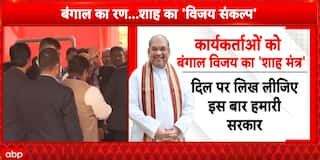Here are top five 'Budget Asks' from the digital sector

New Delhi [India], Jan 30 (ANI): The Internet and Mobile Association of India (IAMAI) highlighted five key tax related challenges that the digital sector expects to be addressed in the Budget announcements.
These five issues have been widely regarded as the biggest impediments towards the growth of the digital sector and are critical for the entire start-up ecosystem.
Angel Tax:
Share premium paid by investors for subscribing to shares in a private company is taxable in the hands of the company at 30 percent (exclusive of surcharge and cess) if and to the extent it is more than the FMV.
The main issue of contention is the valuation of the company or calculating Fair Market Value [FMV] under Section 56(2). Valuation is based on valuation certificate by a valuer recognized by the government. Valuers in India look at traditional methods of valuation which apply to mature companies with regular cash flows.
Valuation of start-ups is a critical factor given that intellectual property and other intangibles involved at the start-up stage. Most technology start-ups raise money before monetization and there is no underlying actual cash flow analysis available for traditional valuation methods. Most start-ups are almost always asset light and do not have assets in their books to justify their intrinsic value.
Tax authorities refuse to accept Discounted Free Cash Flow (DCF) Method for calculating valuation of start-ups, even as that is most common process of valuation and is recognized under Rule UA(2) as one of the 2 methods of valuation for unquoted equity shares. Consequently, in many cases the authorities calculate FMV to be as low as Rs. 1 or even Rs. 0, leading to high tax demands.
While the original regulation has exception provisions for start-ups, the eligible criterion for start-up has numerous conditions like maximum turnover of Rs. 25 crores, maximum five years of existence, nature of business. A critical criterion is certification of eligible start-ups by the Inter-Ministerial Board of Certification. The fact that since 2016 only 74 start-ups have been certified 'eligible' by the Inter-Ministerial board highlights the ineffectiveness of the exception provisions.
The association stated that while the digital sector is not averse to paying taxes, taxation should be on actualised gains and not notional gains. Given the high rate of failure of start-ups, this is a critical aspect of taxing the fast evolving tech sector; or we run the risk of killing the goose even before it lays a golden egg!
Taxation of ESOPs:
For digital start-ups initiating at an uncertain stage, ESOPs is the most common and popular incentive offered to employees at the stage of scaling up of business. From the employees' perspective, in the context of liquidity of their stock, there is an expectation that the company may go public or may be acquired by a bigger player. This allows companies to attract best talents who are also willing to take the risk of joining a start-up.
Typically, most ESOPs have a vesting period (during which the employee should continue to be in the employment of the company) and after completion of the vesting period, the employee may exercise his option to acquire shares by paying an exercise price. Under present provisions, at the time of such exercise of options and grant of shares, the difference between the 'FMV' of the shares and the exercise price paid is taxed in the hands of the employee and the employer is subject to withholding tax obligations on the same.
Unfortunately, when stock is issued under an ESOP scheme in start-ups, there is no certainty on how much value / benefit may be realized when the employee actually is able to sell the stock, or whether the employee will at all be able to sell it, given in most cases these are unlisted stocks!
Thus, taxation of stock issued under an ESOP scheme is purely on a notional basis, and in cases the taxable amount may be way higher than the salary payable to the employees! Currently, employers either (a) withhold from the monetary payments made to the employees (b) ask the employees to furnish a cheque for the required amount or in worst case scenario (c) bear the tax cost themselves.
The association stated that ESOPs are an efficient way to remunerate and incentivize employees to join start-ups and share the risk with the founders. Keeping this in mind the high risk scenario in which both founders and employees work in a start-up, the withholding tax should be done away with and shares should only be taxed on realisation.
Multiple registration and filing under GST:
Like all service sectors, the digital sector too is plagued by the challenge of state-wise multiple registrations and filing burdens. What makes matters worse for the digital sector is the fact that most Indian companies are start-ups who simply do not have the bandwidth to undertake such exercises.
IAMAI urges the authorities to take note of this factor and allow single registration for digital services, as has supposedly been proposed for banking and financial services.
Anomaly in GST Rates:
Internet services digitalize conventional services. For example, Edu-tech provides education via digital platform; health-tech allows online doctor consultancy and ordering medicines, etc. However, under GST, while education and health are tax free, all digital services are taxed at 18%. Even telecom services like internet access are taxed at 18 percent, which is higher than the tax one pays for a meal in a restaurant.
IAMAI urges GST rates to be lowered/rationalized for digital services to be at par with offline counterparts for such services to be more affordable. This will help such services be more popular in the rural areas.
TCS and unlevel playing field for e-commerce:
The onerous burden of TCS imposed on online marketplaces is a step brotherly treatment of one of the most popular and fast developing digital service. TCS forces marketplaces to pay taxes on behalf of sellers, a responsibility that their offline counterparts do not have to bear. The fact that e-commerce facilitates inter-state transaction mean that these platforms have to bear the additional burden of multiple registration and filing on behalf of the sellers as well!
The additional problem with TCS is that small scale seller whose annual revenues are lower than the taxable threshold too will have to register under GSTN and will have 1% of their revenues deducted as tax for every transaction conducted online. This alone is a big disincentive for small-scale sellers to conduct businesses online. This runs contrary to the vision of USD1 Tn Digital economy that envisages e-commerce to reach market size of $150 Billion by 2024.
IAMAI urges the authorities to rectify this provision and provide online marketplaces fair and equal grounds for conducting businesses in India. (ANI)
This story has not been edited. It has been published as provided by ANI
Related Video
Union Budget 2025: Arvind Kejriwal lists the shortcomings of the Modi government's budget | ABP News | AAP





































